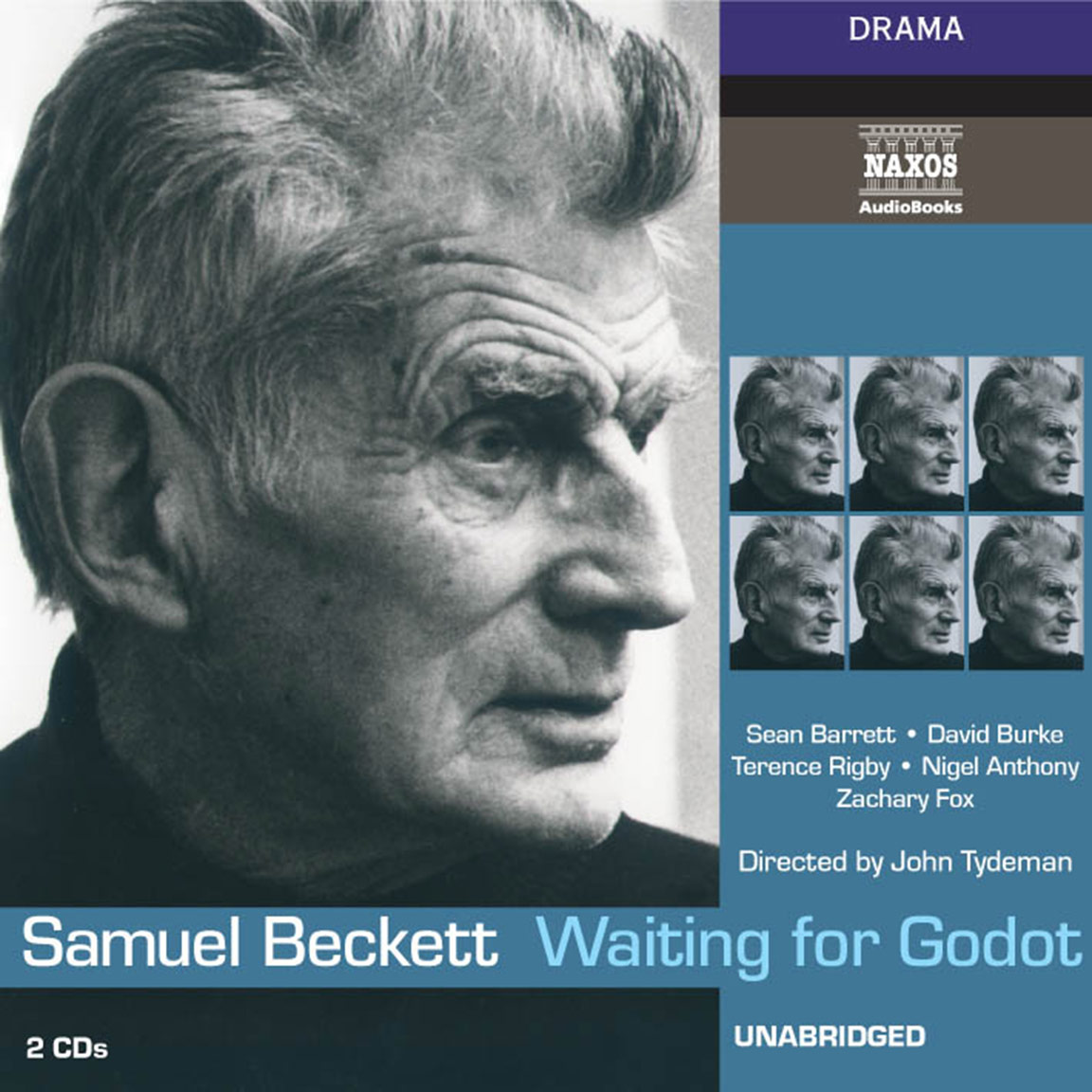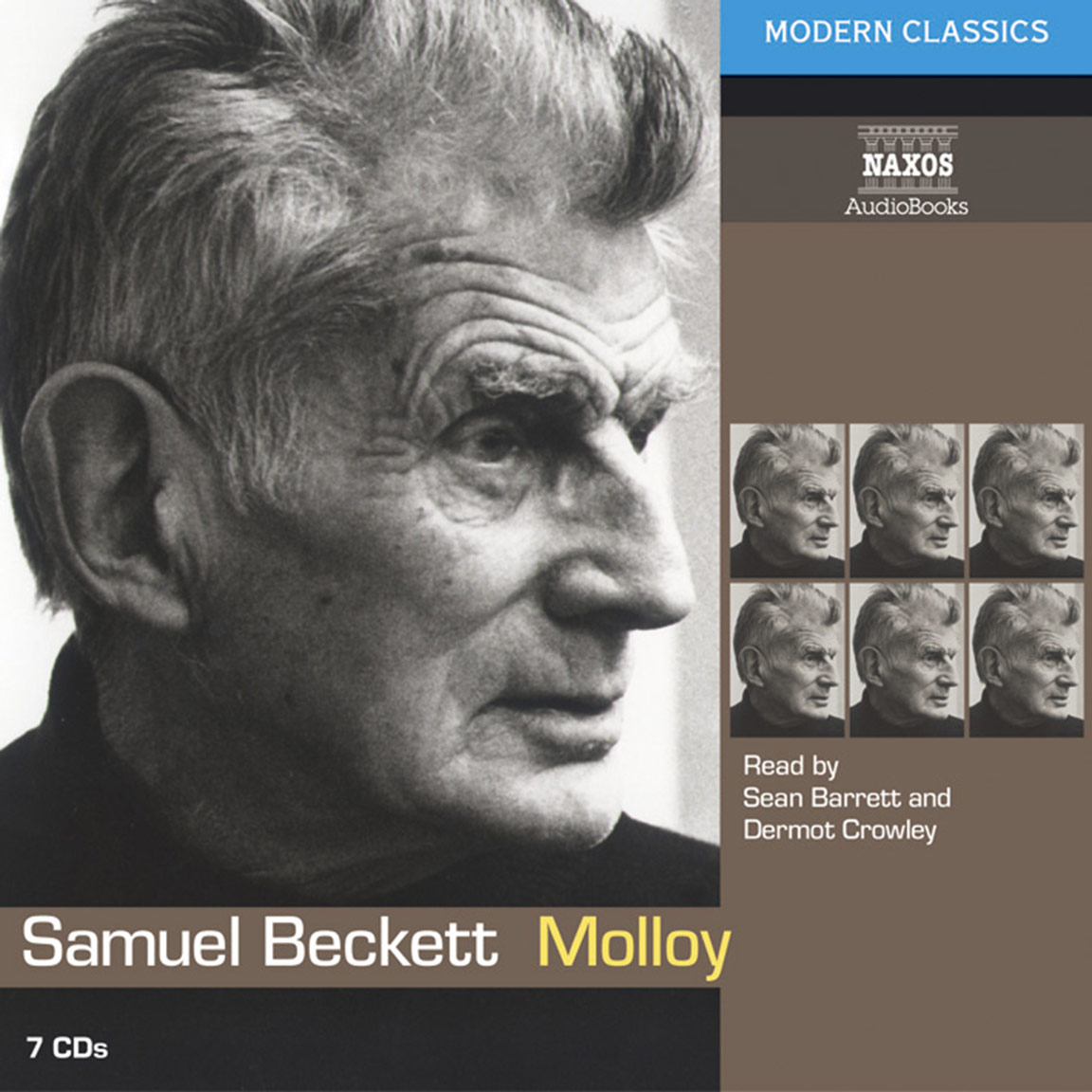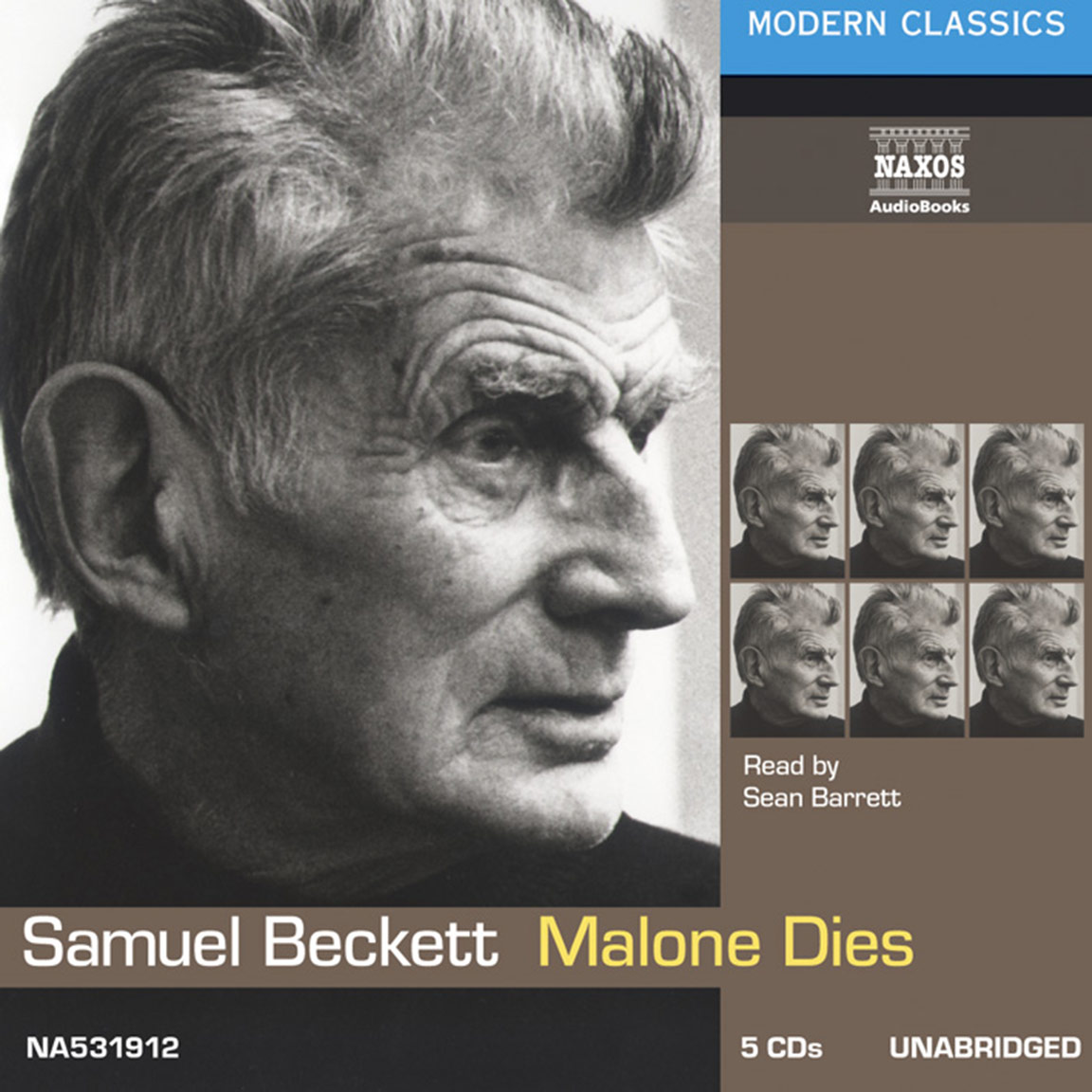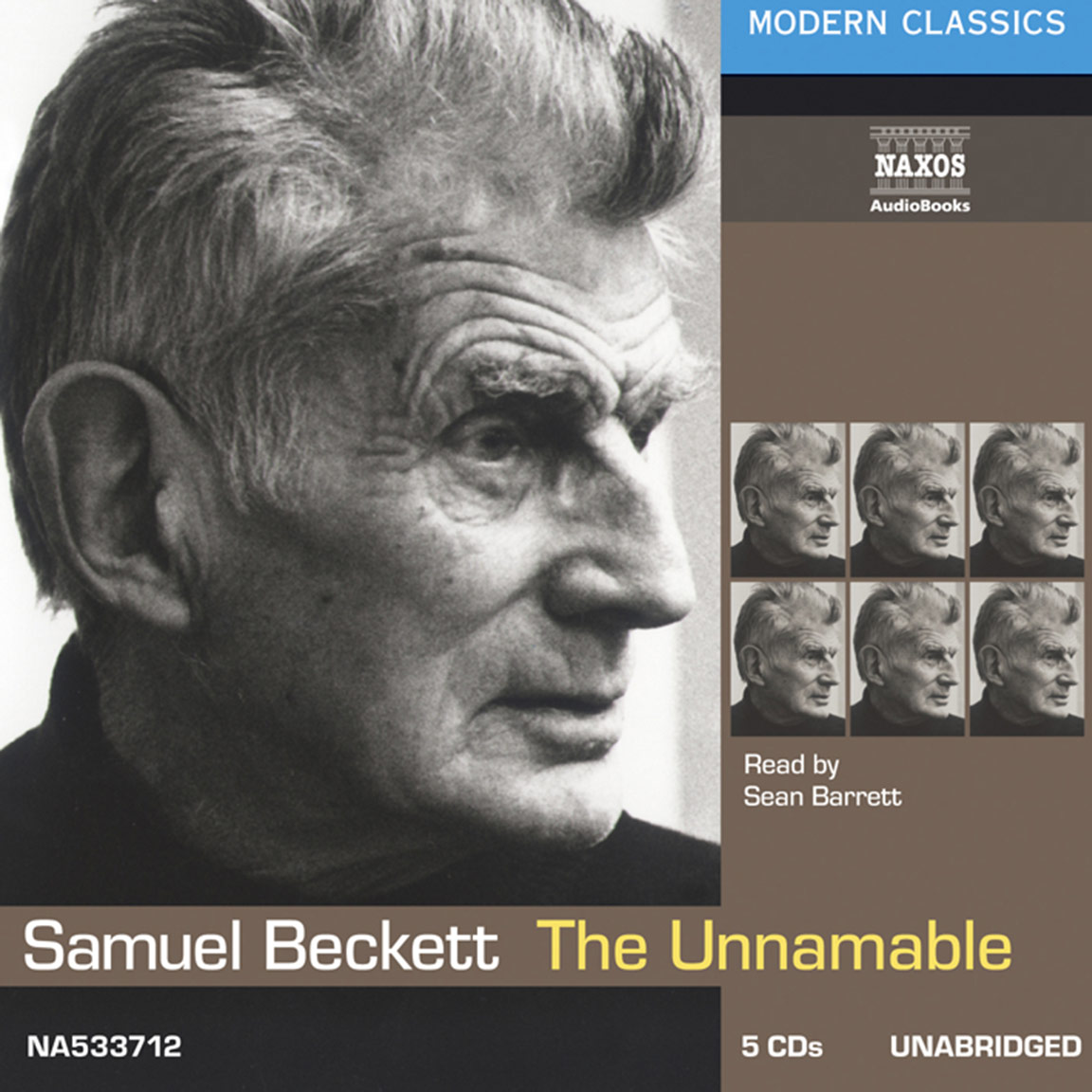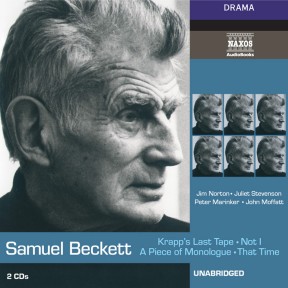
Audio Sample
Samuel Beckett
Krapp’s Last Tape
Not I | That Time | A Piece of Monologue
Performed by Jim Norton, Juliet Stevenson, John Moffatt & Peter Marinker
unabridged
Samuel Beckett, one of the great avant-garde Irish dramatists and writers of the second half of the twentieth century, was born on 13 April 1906. His centenary will be celebrated throughout 2006 with performances of his major plays, including Waiting for Godot. Here are the two most famous plays for solo voice. Krapp’s Last Tape finds an old man, with his tape recorder, musing over the past and future. Not I is a remarkable tour de force for a single actress, as a woman emits memories and fears. Also included are two other singular short dramas for single voice, That Time read by John Moffatt and A Piece of Monologue read by Peter Marinker. It follows the highly acclaimed recordings of Beckett’s Trilogy, Molloy, Malone Dies, and The Unnamable published by Naxos AudioBooks.
-
2 CDs
Running Time: 1 h 27 m
More product details
ISBN: 978-962-634-332-6 Digital ISBN: 978-962-954-680-9 Cat. no.: NA233212 Download size: 21 MB Directed by: Roger Marsh, Katie Mitchell, Nicolas Soames BISAC: DRA003000 Released: January 2006 -
Listen to this title at Audible.com↗Buy on CD at Downpour.com↗Listen to this title at the Naxos Spoken Word Library↗
Due to copyright, this title is not currently available in your region.
You May Also Enjoy
Cast
- Krapp
- Jim Norton
- Mouth
- Juliet Stevenson
- A/B/C
- John Moffatt
- Monologue
- Peter Marinker
Included in this title
- Krapp’s Last Tape
- Not I
- That Time
- A Piece of Monologue
Booklet Notes
The four plays on this recording cover a large part of Samuel Beckett’s creative life, starting five years after the unexpected, but spectacular success of Waiting For Godot in 1955. This made him the most discussed and controversial playwright of his age and helped to bring his important novels, published but known then to only a very few readers, into the limelight as well.
The first work on this recording, Krapp’s Last Tape, ushered in a series of plays in which one actor has to hold the stage alone, representing in prototype a specimen of modern man or woman, coping alone with a life that has passed, and trying to understand it.
Beckett had always seen himself primarily as a novelist who turned to the theatre for relaxation and some escape from the loneliness of working alone in a room, which is a novelist’s life. The theatre offers the companionship of actors and a creative team and, providing that his colleagues on that team respected the integrity and special attention to detail that his work required, Beckett enjoyed that companionship. But much as his non-theatrical work is admired, it is for the plays that Samuel Beckett is best-known and most popular.
Beckett was a true agnostic, open to every theory about human existence
Beckett never set out to entertain or flatter his audiences. All his work has a unity that is based on a clear-sighted recognition of what life is about, summed up in Waiting For Godot in Pozzo’s departing line, ‘One is born astride of a grave.’ The greatest tragedy of life is its shortness and as we get older we get increasingly aware of our mortality. The fear of death underlies all religion and even those who have no faith speculate about matters related to the supernatural, to aspects of consciousness and dream and to the possibilities of life or thought continuing after the death of the body. Other than giving a general promise that an after-life exists, the great religions of the world are deliberately vague about such matters. It is writers who have tried to describe the afterlife, Dante and Milton prominent among them, and both have been major influences on the work of Beckett.
Samuel Beckett, now considered by many to be the major literary figure of the twentieth century, born in 1906 at Easter and dying at Christmas in 1989, was a poet and a philosopher as much as a novelist and playwright, and in a very similar way to Shakespeare to whom he is increasingly compared. From his university days at Dublin’s Trinity College to the end of his life in Paris, he thought out what the great plan of the universe could possibly be, read what others had written, separated dogmas from objective thinking, questioned if such a plan even existed and what part a conscious God could or did play in events. The question of mankind’s ultimate destiny and of purpose for life was never far from his mind. George Bernard Shaw, before him, had done the same, looking at the possibility in Darwinian terms of man, through evolution, finally becoming God as God had been conceived by men in the past. Beckett could not share Shaw’s optimism and did not have a very high opinion of what man has made of himself and his world, but he did concede that there are many things we do not understand and that a whole world of possibilities waits to be discovered, not just through science and technology, but through the discoveries we must all make into the workings of the human brain and the many possibilities of consciousness itself. We all have a separate dream life and can find ourselves in another world in a coma. Some people have reported out of body experiences where the mind travels where the body can not. Others besides Lazarus have claimed to have returned from the dead.
It takes courage to think about these things and creative genius to find a way to open up such subjects to the public. Beckett had both, and the fascination of his work lies in the way he makes us realize how much more there can be to life in our ability to think about and explore subjects that are close to religion, spiritualism and medical science, whereas most people fill their lives with trivial interests and everyday habits in which thought plays very little part. Beckett was a true agnostic, open to every theory about human existence, having an incisive mind that examined every belief and tenet and field of enquiry that came his way. His novels and plays are the fruits of that thinking and they can only make others think.
Beckett had friends in all the arts, among them many painters and musicians. Krapp’s Last Tape was set as an opera by Marcel Mihailovici, a Rumanian living in Paris, and he told me that Beckett not only worked on the score with him, but contributed many musical ideas and passages to it. His interest in the visual arts is evident, not only in his highly original writings on the subject, but in the extraordinary stage pictures that his plays give us, showing heads on urns, as can often be seen outside some French restaurants, or a mouth apparently suspended in mid-air but talking, or the top of a woman’s body trapped in the earth and sinking ever lower. These give a potent visual addition to plays that poetically expose profound truths about the human situation that, unfortunately, in an introduction such as this can only be described, or explained in stage directions. But their presence, when seen on stage, prove what an all- round artist Becket is.
Krapp’s Last Tape
Beckett’s novel Molloy was broadcast on the BBC Third Programme, which Beckett could not receive on his radio in France, so Martin Esslin made a special trip to Paris with a tape recorder to enable him to hear the voice of Patrick Magee reading it. Playing the tape recorder and hearing the actor’s voice as he wound the tape backward and forward gave Beckett the idea for Krapp, his most autobiographical play. Krapp is an old batchelor and it is his sixty-ninth birthday.
He has for many years recorded his birthdays on tape as one would in a diary and kept the reels in boxes, so that much of his life can be recalled by his own voice. The voice has changed over the years, so that we hear the contrast of the young man of his youth and the old one he is now, as well as the voice that recorded certain key moments on other birthdays. We hear that of the young lover, and Krapp listens carefully to his younger self in love at an idyllic moment in a punt on the river. Such a moment obviously had a special relevance for Beckett because it is mentioned elsewhere, in Play for instance, written later. Another key moment, and we know that something very close to it happened in Dun Laoghaire when the author’s mother was dying in a nearby nursing home, is a scene described as ‘the vision at last’ when the protagonist, himself a writer whose work has had no success, suddenly realises during a dark and stormy night on the quayside, that his future writing lies, not in trying to drive under his pessimistic and sombre view of the world, but in accepting it and making what he perceives the basis for his writing. Krapp always believes that his life will correspond to the biblical seventy years and he occasionally casts a wary eye into the dark corners of his room, knowing that the grim figure of Death will be hovering there.
At the time Beckett was writing the play, a historical account of the persecution of the Cathars of Provence became a bestseller in France. The Cathars were a Manichean sect of the eleventh century who believed that the Devil had more to do with influencing life on earth than God. Therefore they lived lives of extreme puritanism to combat the Devil and, when put down by the Catholic Church as a dangerous heresy, they died in their thousands with great courage. Believing the world to be divided between light and darkness and that the corresponding colours were significant, they went to great efforts to establish puritan whiteness and to become pure in all things. Beckett was always interested in theology in all its aspects and he certainly knew the book.
Krapp’s Last Tape is based on Manicheism and is set on an equinox when night and day are equal in length. As far as possible, Beckett tried to get everything on stage to represent blackness or whiteness. The whisky that Krapp guiltily drinks, knowing that it is bad for him, is dark. The bananas he eats (and at one point be trips on the skin of one he has thrown away) are white. A ledger in which he keeps a record of his tapes is black, but the tins that hold the tapes are white. Other objects, including his apparel, conform to the dualism of colour, and the hymn that he remembers and sings also reflects the two sides of life, the bright and the dark. The division of body and spirit, representing the dark essence of the body and the whiteness of the soul, are also Manicheistic images. One can also connect the bright young voice of Krapp in love with light and the old man awaiting death with blackness.
But there is a positive side to the play.
Krapp, like Beckett as a writer at the time, knew that the old days of uncertainty about his destiny as a writer were over. He would not want to return to the past with all its possibilities of conventional happiness. ‘Not with the fire in me now’ he says. He has become the artist his ambition always wanted him to be. And fire can be seen as dark or light. It was the way so many of the Cathars died, by burning. Mani (Mani or Manes was the third century founder of the Persian sect that continued the theories of the Greek Gnostics of early Christianity. There have been many later revivals and influences.) predicted that those who live by fire will die by fire and Beckett, in imposing the images of Manicheism on his play can also be seen as finding a connection between the exultation of an artist in the act of creation and that of the martyr. It is an interesting paradox that certainly reflects Beckett’s self-perception at the time. Deeply moving, it has always been one of his most successful plays and many distinguished actors have performed it.
Not I
Not I, written in 1972, is a monologue for a woman’s voice, simply called MOUTH. She is watched by a shadowy figure, the AUDITOR, who on only three occasions becomes dimly visible. In small theatrical spaces and in the television version, Beckett deleted the figure of the Auditor for practical reasons, but the play is more effective if he is there, a tall standing figure enveloped in a loose djellaba with hood. He is obviously there in judgement, while the Mouth, which is all we see of the woman, tells her life story, but in denial, refusing to admit that it is herself whose life she is relating. The Auditor listens, raising his arms in despairing protest at the refusal to say ‘I’ instead, of ‘She’.
Mouth tells the story of a child born as the result of a random fornication, no love anywhere, either at the time of coupling or after the unwanted birth. The life is uneventful, certainly not happy but with a few pleasant memories. Some pious platitudes emerge, doubts about what is happening in life, but always there is a refusal to identify with the person who is being described. It is a short play and a painful one, showing us not only that most lives are simply accidents, but inconsequential, even to the people who have to live them. It shows Beckett as the observer he was, simply telling us the reality of a pointless life.
The Auditor is another matter. The narrating Mouth is apparently unaware that she is being overheard, but this is by no means certain. It is for the individual member of the audience to decide whether the Auditor is a kind of Saint Peter, having to decide whether to punish her for her refusal to face the truth or to pity her and give her some further existence; or whether he is simply some ghostly presence in the afterworld. What astonishes the audience as the curtain goes up is the sight of a lip- sticked, moving mouth suspended in blackness that at a distance looks very like a vagina and by its very movements suggests that some sex act is taking place. It is a daring and in some ways frightening image. It was first performed in London in 1973 by Billie Whitelaw.
That Time
First performed in London at the Royal Court Theatre in 1976 with Beckett’s favourite actor Patrick Magee, whose voice had inspired the writing of Krapp’s Last Tape, That Time is about the experience of so many Irish labourers who came to England to get employment. They were exploited by employers looking for people who would work hard, never complain, expect the minimum in social insurance, safety precautions and benefits, often happy to escape tax by working for cash or illegally.
The Listener is at the end of his life, listening to his own reminiscing voice. It comes from three directions as the memories intermingle, some from childhood or young manhood in Ireland, some from his experiences in England. He takes shelter from the rain in an art gallery in London, remembers some of the pictures, or recalls the miserable weather and the loneliness that was the inevitable experience of these immigrants, unwelcome to the English generally. A muddle of many thoughts and images from the past goes through his consciousness as he waits to die, probably in a hospital bed, perhaps in a cold bedsit, an old man now, worn out and with no hope left.
Visually the man is seen from above, so that on stage he has to be propped into a position that faces the audience, seeing him as if it were looking down on him. The poignancy lies in the inevitability of it all, another pointless life about to fade away into the unknown.
It was not for nothing that when Beckett won the Nobel Prize for Literature in 1969, the citation stressed that he was one of the only writers to have made the dispossessed and crippled, the poor and lonely, all those at the bottom of the human heap, his main characters. Beckett seems to celebrate those whom the world ignores, whose lives, like the Mouth in Not I, are empty and soon forgotten, brought about by the will of nature to make us procreate, mostly by instinct and at random, in order to continue our happy species.
A Piece Of Monologue
This was written in 1979 and first performed by David Warrilow, an English actor who played in America and France and also Britain. It is more like the many monologues that Beckett wrote for the printed page rather than the later dramas created for the stage. But it hardly matters, because from the novel Molloy onward, most of Beckett’s fiction was written in the first person and works beautifully when delivered by a suitable voice.
The narrator is once again telling the story of his life. The first sentence echoes a familiar Beckett thought, that life is so short that birth and death are inextricably linked and can be seen as almost the same event. The turning of the seasons is interwoven with the process of aging and, as so frequently in Beckett’s writing, there are personal anecdotes, family memories, references to photographs which convey, if not immortality, at least a continuance of what was once, but which, like life itself, can be torn up and scattered.
The turning of the leaves or the falling of pine needles, the rise and fall of night and day, the succession of the seasons are constantly brought up to remind us that these only stick in the memory but are symbolic of our minds, again daily, moving rapidly towards the end. The image is simple: a man stands beside a light, talking, remembering, equating his beginning and his end and, as in most of Beckett’s late work, always with the suggestion that ghosts are present or will be. There are references to past loved ones and therefore to love, but love is fleeting, the shortest of memories and often painful. That is one reason that each mention of loved ones is almost in denial. It is a beautiful text, poignant and poetic, quietist in its acceptance of the inevitable.
Standing beside a standard lamp in his nightgown, the Speaker leaves an unforgettable image in our minds and one knows instinctively that when the light goes out, so will the man himself.
The recognition of the genius of Samuel Beckett and his very unusual view of the world and of human destiny has now crossed every cultural barrier and language because of the universality of that genius; and the realisation of every individual who encounters it that the honesty and insight that he or she recognises is relevant to each one of us.
What emerges from the work is the very antithesis of the attitudes that our time, through its political and commercial institutions, and especially through its media, wants to encourage.
Beckett is the ultimate realist, showing us our world and our lives in it as it really is, with no sugar-coating, no faith that it will improve, or in eventual succour; but not ignoring the power of the mind to find its own comfort in its ability to realise, understand and accept the inevitable. The power of the writing, the daring of the imagery, above all the poetry in the cadences and the phraseology establish his artistic mastery. The magic lies in Beckett’s ability – through making us see the world as it is and not through a rosy cloud that would not be believable – to be ourselves and to see our own tragic lives and destinies as part of the great sweep of whatever it is we are evolving towards.
We live short lives on an overpopulated planet where we still fight and kill each other, exercise terrible cruelty against others very little different from ourselves, and follow doctrines that often encourage us to do even worse. Beckett was very aware of all that and did not hold much hope for any future improvement; but he did enable us to see – at least that minority that has the courage to be itself aware – of what reality is.
The ability to recognize truth and beauty is part of that artistic awareness; and to look at reality is to make us better specimens of our human race, able, in spite of all the negative frustrations that confront us, to still find some pleasure, comfort and self-understanding through our contacts with others; and through our own mental processes, some essential dignity, as necessary to life as breath. Only the intelligent can be humble through their own volition. Beckett teaches us that through that humility we can better share what all humanity has in common, and that there must be some comfort in that.
Notes by John Calder
